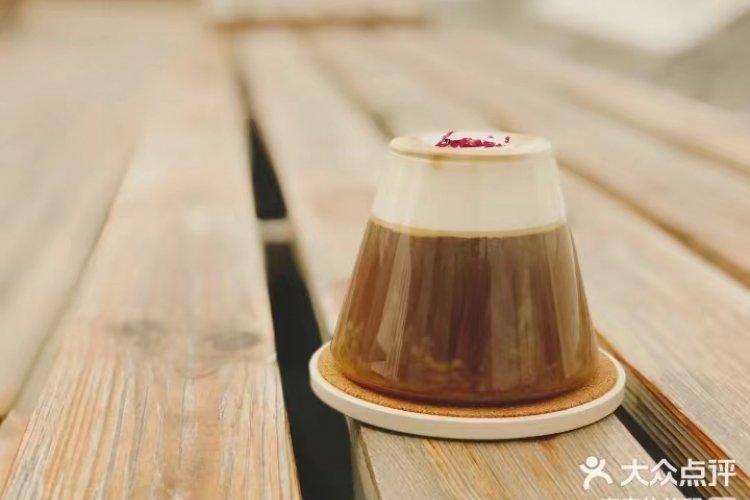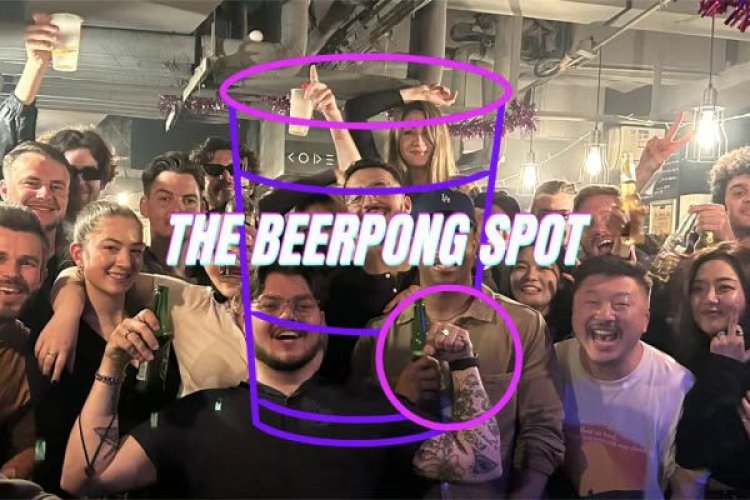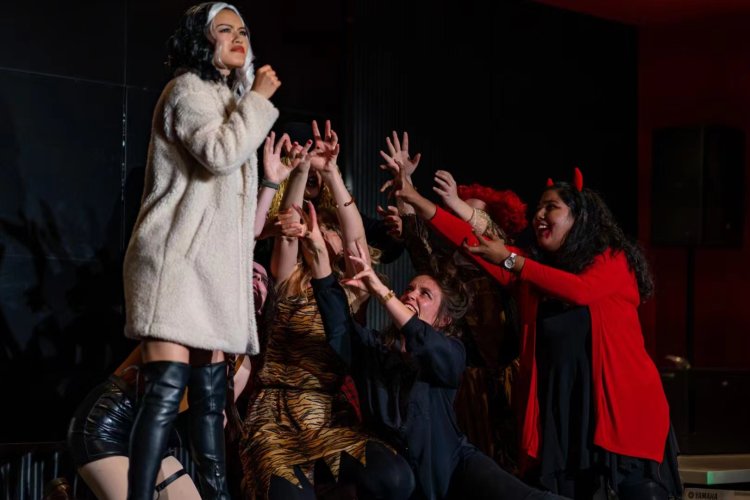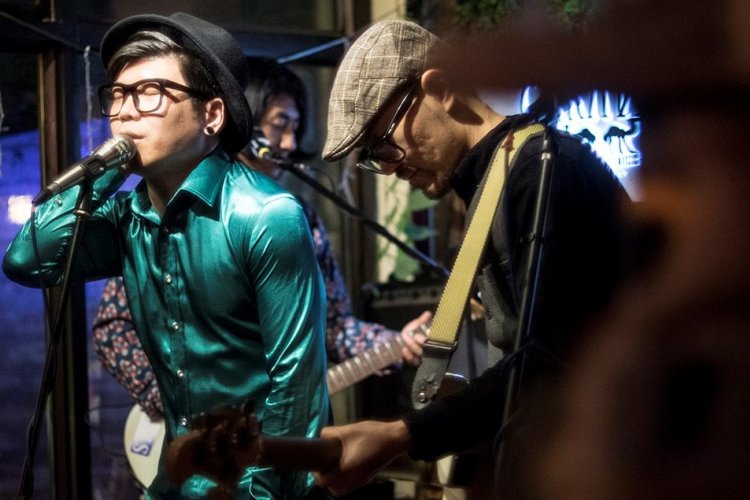Beijing Barista: Au Natural Coffee with Shangrila Farms
New Yorker Sahra Malik first moved to Beijing in 2003 for her father’s job – she never expected she’d come back after her stints at New York University and Central Saint Martins. But now, with her newly established (in October 2009) NGO – which specializes in selling coffee, honey and other natural products produced in Yunnan – gaining ground, she’s here to stay. She told Agenda all about her love for Yunnan and the growing acceptance of coffee in China.
What motivated you to move to Beijing and start up an NGO?
My father works with the United Nations, so I spent half my life in New York and the other half moving around. We first moved to China in 2003, I left to do my Masters in 2005, and I came back after graduation to work for Saatchi & Saatchi and then Ogilvy. On the side as a passion project, I did fundraising for my mother’s NGO, the Yunnan Mountain Heritage Foundation. They do great things in Shangri-La working with ecotourism and handicraft development, while also setting up free libraries and English classes for the locals.
Through helping out with that, I ran into these coffee farmers, who I collaborated with to raise funds for her organization. Eventually, they gave me the inspiration to start Shangrila Farms, and it just started gaining momentum from there. I decided last summer to start doing this full-time. I work on the coffee, while my sister works on the honey and beauty products.
Where else have you lived, and why did you settle on Beijing?
I’ve lived in Guyana, Uzbekistan, Wales, Italy and the UK. It’s hard to pinpoint exactly why I chose Beijing, but I guess I would say the energy of things – it’s always changing. Also, it’s a great atmosphere for business due to the growing economy and the fact that you can operate on a worldwide platform.
How do you like your coffee, and what are the different steps that factor into the overall quality and taste?
I’m a big fan of cappuccino. Amongst the types we sell, my favorite is probably the Caravan Breakfast – our Brazilian roast. There are a lot of differences between coffees, depending on the species of plant, the environment and the roasting technique. For example, the Caravan Breakfast is a Brazilian plant grown in Shangri-La and then roasted in the traditional Brazilian way.
What drew you into the coffee industry?
My family and I once stopped over in Kunming on our way to touring Shangri-La. We were just roaming around town when we discovered this coffee shop – it was really small, but the coffee was just exceptional. The people who worked there happened to work on a farm as well, so we later went down and visited them.
We were so intrigued, because the coffee was so different from the others grown in the area – they emphasize quality and variety, with many different types of native and imported coffee plants from Brazil, Columbia and Indonesia. Other companies usually mass-produce their coffee in a cheaper way, but this farm was only doing high-end boutique coffee without any chemicals and pesticides. I really liked the work they were doing; our business ideals really sprung from their philosophy. Really, they already had the great product – we just provided them with the marketing and distribution skills to help sell it.
Besides coffee, what other products does Shangrila Farms make?
We recently launched our organic honey line – the flavor is really special. Right now, we’re training local farmers in Shangri-La to raise bees and harvest honey. We’ve given them access to free bee hives and equipment. It’s something that hasn’t been done before in Shangri-La, even though the environment is perfect for it – very pristine, with very few chemicals and lots of flowers.
We also do tons of natural beauty products, including creams, bath salts, balms and facial sprays. They’re all handmade from mostly imported natural ingredients, mainly because we don’t want any chemicals, additives or preservatives. We have to import them because it’s hard to know whether ingredients here have actually been altered.
Our soaps, for instance, are made through cold process. Normally, cheaper soaps are heated up and cooked, stripping the soap of all its nutritive qualities. Ours are cold-pressed by hand, which takes much longer but keeps the pure ingredients, so that it’s better for your skin. Our creams are richer, thicker and better for your skin because we don’t add water – when you add water, you have to add preservatives.
Any suggestions for areas of Yunnan to explore?
I get to visit Yunnan maybe once or twice a year. It’s lovely, just a great place full of blue skies and green hills – a complete contrast to Beijing.
I’d definitely recommend visiting Shangri-La – it’s one of my favorite places. You ought to avoid the new town and go into the old town; the new town’s very industrial, while the old town is special and has Tibetan architecture. If you tour the area, there are a lot of monasteries and temples, and hikes you can take nearby. You can also take day trips around Shangri-La. And of course, there’s the Tiger Leaping Gorge – I have yet to try it, but it’s on my list of things to do.
Why do you think there isn’t more high-quality coffee in Beijing?
Since coffee was first brought to Yunnan [probably via Vietnam as early as the 19th century], the demand has just been increasing and increasing. There has been a huge growth curve. It’s produced, grown and sold in China, but also exported. The farmers don’t really drink coffee, they just eat the berries. But I do think that peoples’ tastes are changing. In the past, China has always been a tea-drinking culture, while coffee has been more of a Western thing. But now with Starbucks and other places like that, coffee is becoming more well-known and popular. The culture has changed from going out and having a cup of coffee to making it at home as well.
What’s your view on Starbucks?
It’s not terrible – it does have a standard of coffee, but it’s a little bit like candy coffee. They just add tons of milk and syrups, which is not like pure coffee taste, so it’s kind of like the McDonald’s of coffee. I do like it when I’m traveling and there’s a Starbucks, so I can get some caffeine when I want it, but it’s definitely not what I’d call gourmet.
What is the appeal of Shangrila Farms coffee?
We’ve done a lot of bazaars, where we meet our clients who have already bought our products at Jenny Lou’s and April Gourmet. I think a lot of people like it because it provides a decent alternative – it’s not the expensive imported coffee or the cheap Yunnan coffee, but it’s something local and fun to give as a present.
What are some of the key points of the company philosophy?
First and foremost, we sell only natural products and purchase everything fair trade, at four times the fair trade standard. We want Shangrila Farms to be a brand that you can trust. We also want to create a standard for Chinese gourmet products, letting the world know that there are high-end products made in China.
Working for the UN, my father wanted to do good for the world and passed along the same values to me. My mother also does NGO work, which instilled in me the idea that you should give back to the community through your own work.
Find Shangrila Farms coffee at Jenny Lou’s, April Gourmet, or online at www.shangrilafarms.com or www.totoo.cn
Related stories :
Comments
New comments are displayed first.Comments
![]() jwbb
Submitted by Guest on Mon, 03/07/2011 - 14:59 Permalink
jwbb
Submitted by Guest on Mon, 03/07/2011 - 14:59 Permalink
Re: Beijing Barista: Au Natural Coffee with Shangrila Farms
I've tried their beans, and it's a very poor quality for their price range. Stay away. They also have honey and my mate got the runs from it, at50yuan a bottle it should be great, not give you diarrhea.
Validate your mobile phone number to post comments.






